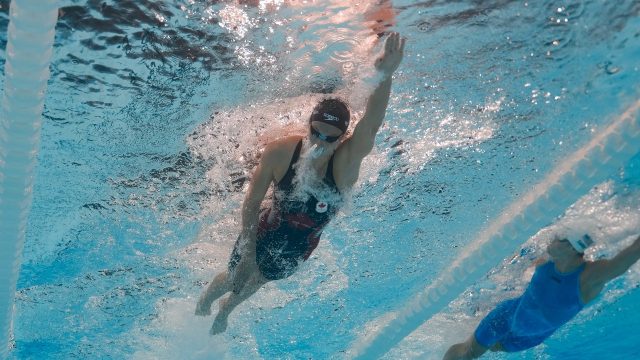
NANTERRE, France — Zhang Yufei hopes her international rivals will believe she is competing clean after the Chinese swimming star estimates she took between 20 and 30 drug tests monthly in the lead up to the Paris Olympics.
“I don’t think there’s a single athlete, Chinese or foreign, who would test positive for doping. They would not want to destroy all the hard work they’ve put in over the years on doping,” Zhang told reporters in the mixed zone Saturday, when she was the top qualifier for the 100-metre butterfly final.
She won her preliminary race in 56.50 seconds during the first day of swimming competition at Paris La Defense Arena. She said afterward she is anxious about what her friends and competitors in the swim world are thinking about Zhang and others from the Chinese team.
Zhang said she and her teammates have tested three to four days a week in the past couple of months leading up to the Paris Games and in the wake of a doping scandal involving 23 Chinese swimmers — including Zhang — ahead of the Tokyo Olympics three years ago. The World Anti-Doping Agency stood by its decision to clear the swimmers who tested positive for a banned heart medication months before the Tokyo Games.
The contamination was said to have come from spice containers in the kitchen of a hotel where some of the Chinese team stayed for a national meet in January 2021.
Zhang won four medals, including two golds, in Tokyo.
“I get along very well with friends from different countries and now I come to participate in the Olympic Games and I’m very worried that my good friends look at me with colored eyes and they do not want to compete with me or watch my races,” she said. “I am more worried that the French people do not think the Chinese deserve to stand on this stage. So I would feel very aggrieved. This is only my personal opinion, not on behalf of everyone. I also hope that everyone will be objective with bright eyes to look at objective facts.”
World Aquatics, swimming’s governing body, announced earlier this month that the Chinese swimmers were undergoing extensive testing ahead of the Olympics. Eleven of the athletes who tested positive were scheduled to compete here.
Hungary’s Ajna Kesely said after swimming her 400-metre freestyle heat that she is focused on improving her swimming on the big stage and expects that’s the same goal for the Chinese.
She appreciates their regular testing protocols, and said: “If they feel that it’s OK and they feel it’s better to prove that they don’t use anything, it’s a good idea.”